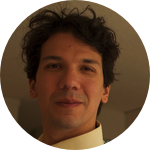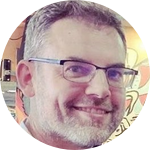About This Project
An over-reliance on authorship to index researchers' achievements has held back scientific collaboration. Recently, however, academic journals have become more willing to formally recognize not just those who contribute to the writing of a paper, but also other contribution types. This helps democratise science. Our project will facilitate this change in science by implementing the CRediT standard in open-source software used by thousands of academic journals.
Ask the Scientists
Join The DiscussionWhat is the context of this research?
Academia's incentive system has glommed onto authorship of articles as its index of scientists' achievements. For those who contribute to science but not to the writing-up, this frequently deprives them of a career path. Moreover, it has driven collaborations to be small, hindering the skill specialization that drives progress across a range of human endeavors.
For example, one of us (AH) was on a path to specialize in scientific programming, which later became enormously important with the rise of programming-heavy fields such as bioinformatics and brain imaging. However, because the norm was not to award authorship for contributions to software development, AH conformed to the more feasible path of becoming a jack-of-all-trades.
What is the significance of this project?
The culture around crediting researchers is slowly changing for the better, but the technology that would allow implementation of this has lagged (there is little funding available for scholarly communication infrastructure). Addressing this will both make science more fair and also it should speed scientific progress, as it will remove one of the brakes on scientific collaboration.
The last few years have seen a rapid rise in international collaboration thanks in part to greater willingness to work over video calls, however the associated researchers have had trouble receiving career credit. Completion of our project will encourage more and larger international collaborations, so that research will happen that otherwise would not have occurred.
What are the goals of the project?
We hypothesize that this project will result in more scientific research conducted by larger and more diverse teams. We will quantify this by the number of authors per journal article, and number of countries represented, across the associated journals compared to others.
Adding CRediT (the Contributor Roles Taxonomy) to the most popular open-source academic journal management system, Open Journal Systems will immediately allow hundreds of journals to recognize a wider range of types of contributions to research. We will also add uploading of CRediT to indicate who did what in a project, so researchers can use our free open-source app to prepare the CRediT information. Read more about that here.
Budget
The funding needed is for software development, for the open-source projects Open Journal Systems and tenzing.club.
Endorsed by
 Project Timeline
Project Timeline
Open Journal Systems is led by the Public Knowledge Project, so we will depend somewhat on their schedule for videocalls to discuss the design of the software specification, plan the software development, and facilitate user testing. Otherwise, the timeline should be straightforward.
Aug 24, 2023
Project Launched
Oct 10, 2023
In meetings with the Public Knowledge Project leadership, develop the OJS CRediT backend implementation plan
Oct 31, 2023
Make arrangements to pay the software developer (which may be one of us or a PKP developer)
Dec 07, 2023
Finish design of the frontend CRediT user interface for OJS, in collaboration with PKP
Feb 01, 2024
Complete initial software development of backend and frontend
Meet the Team
Team Bio
Alex and Marton have worked together on metascience projects related to better crediting researchers since 2019, when they met at the Annual Meeting of the Society for the Improvement of Psychological Science.
Alex O Holcombe
Alex has been frustrated by the institutional barriers to scientific progress for twenty-five years now, and been involved in a wide array of initiatives to address them. For example, he was on the founding advisory board of what became the largest open-access journal in the world (PLOS ONE), and served in similar capacities for the Association for Interdisciplinary Meta-research and Open Science, the Free Journal Network, Psychology in Open Access. He is an associate editor of the Wikimedia Foundation's WikiJournal of Science, the University of California Press' open-access journal Collabra:Psychology, and the open-access journal Meta-psychology. He publishes papers about meta-science and open science and also writes about these topics on his blog and on social media (Mastodon, twitter).
Alex received his PhD in psychology from Harvard University and in his laboratory he conducts experiments on visual perception and visual attention that provide insights into how the mind works. He has published papers in this area in Nature, Nature Neuroscience, Current Biology, and other prestigious journals, as well as lower-tier journals that have often done a much better job of promoting open science.
Marton Kovacs
Marton Kovacs is a Ph.D. student in the Metascience Lab at ELTE, Hungary. In his doctoral research, Marton mainly focuses on empirically assessing potential barriers to research efficiency at different stages of the research pipeline and developing tools to mitigate these issues. As a 2022 Fulbright scholar, he visited the Meta-Research Innovation Center at Stanford (METRICS) lab of Stanford University.
Marton is the associate director of the Data and Methods Committee of the Psychological Science Accelerator, a global network of over 2000 psychological laboratories. Currently, Marton is working on STAPLE, a project management software for tracking research metadata, supported by a NASA ROSES grant.
He is the lead developer of tenzing (one of the subjects of the present project), a web app and open-source package that helps researchers document their contributorships according to the CRediT taxonomy.
Here are two of Marton's publications:
Kovacs, M., Van Ravenzwaaij, D., Hoekstra, R., & Aczel, B. (2022). SampleSizePlanner: A Tool to Estimate and Justify Sample Size for Two-Group Studies. Advances in Methods and Practices in Psychological Science, 5(1), 251524592110540.
Kovacs, M., Holcombe, A., Aust, F., & Aczel, B. (2021). Tenzing and the importance of tool development for research efficiency. Information Services & Use, 1–9.
Additional Information
While the impact of this project should rather quickly enable researchers to have larger, more diverse teams, as is evident in the timeline, the assessment of the resulting change to the scientific progress will take a few years to accumulate enough data. However, we already have started an associated project, the CRediT Observatory (with a collaborator, John Ioannidis) which sets the stage for collecting the necessary data as it comes in.
The following scholarship, some of which is cited above, that supports the background of our proposal:
Holcombe, A. O., Kovacs, M., Aust, F., & Aczel, B. (2020). Documenting contributions to scholarly articles using CRediT and tenzing. PLOS ONE, 15(12), e0244611. https://doi.org/10.1371/journal.pone.0244611
Holcombe, A. (2019). Farewell authors, hello contributors. Nature, 571(7764), 147–147. https://doi.org/10.1038/d41586-019-02084-8
Holcombe, A. O. (2019). Contributorship, Not Authorship: Use CRediT to Indicate Who Did What. Publications, 7(3), Article 3. https://doi.org/10.3390/publications7030048
Kovacs, M., Holcombe, A., Aust, F., & Aczel, B. (2021). Tenzing and the importance of tool development for research efficiency. Information Services & Use, 1–9. https://doi.org/10.3233/ISU-210109
Project Backers
- 2Backers
- 100%Funded
- $7,025Total Donations
- $3,512.50Average Donation



